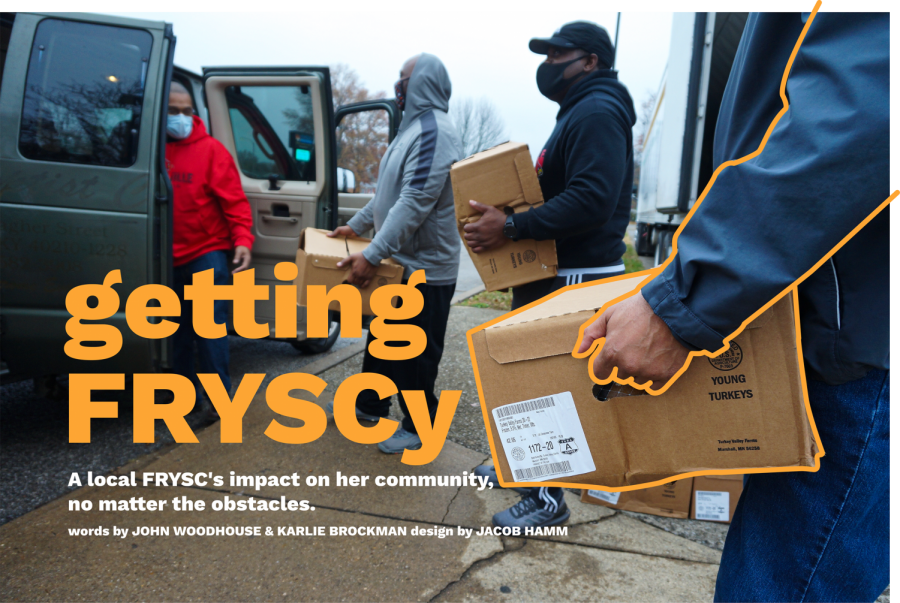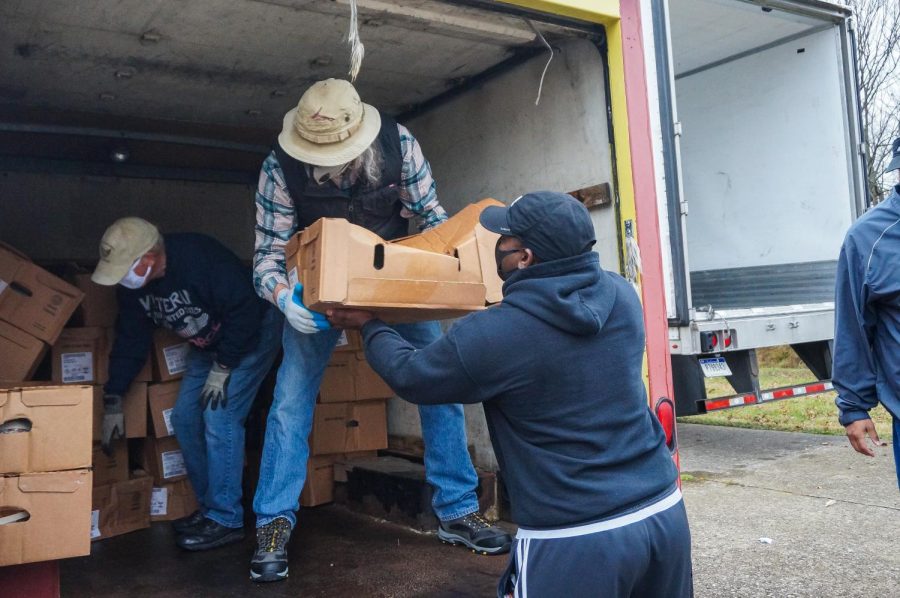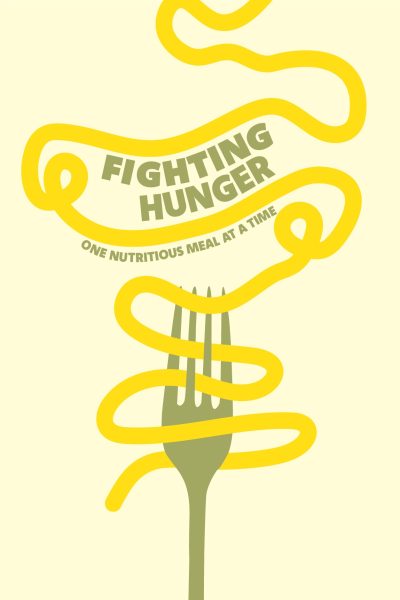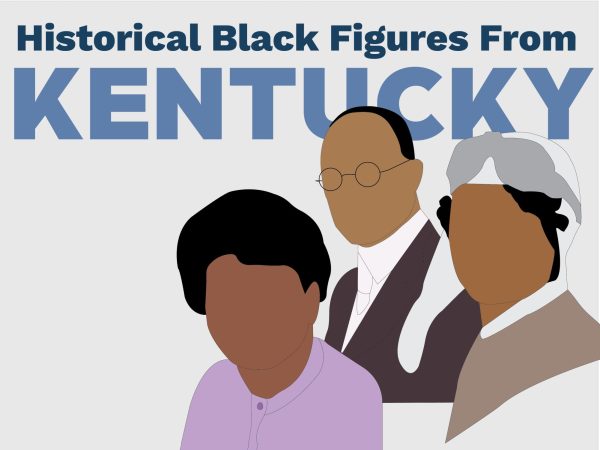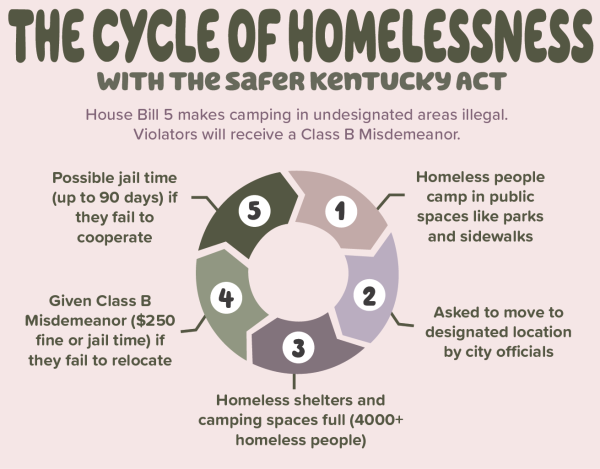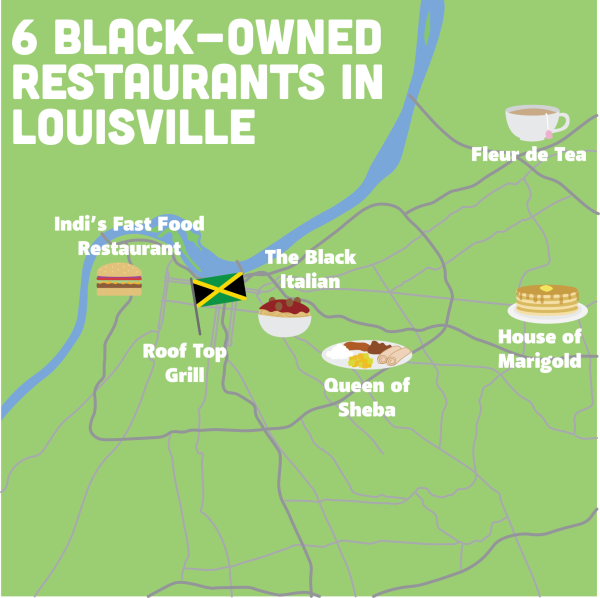Getting FRYSCy
Photos by Bella Tilford
Of all days, today was the day MaryCarmen was being forced to take a test. Frustration built inside her as she walked into the auditorium doors of Moore High School. Frustration had become a feeling MaryCarmen Pena-Ruiz found herself sitting with more and more often. But today was supposed to be special — it was her birthday.
She targeted her frustration at the test proctor, Jamie Issis. As Jamie passed out supplies to students and answered questions, Pena-Ruiz tried everything she could to get out of taking the test. Her efforts proved fruitless and soon she realized she would not win this fight. Defeated and angry, Pena-Ruiz took the test.
The following day, Pena-Ruiz’s Reserve Officer Training Corps (ROTC) leader called her into his office. Knowing her complicated home life and how it was affecting her, he sent her to someone he thought could help. Coincidentally, that person was Jamie Issis.
Issis wasn’t just any other staff member at Moore, though. And getting sent to her office wasn’t a form of punishment, but a hand reaching out to help. That’s because Issis works as a coordinator for the Family Resource and Youth Services Center (FRYSC) — pronounced “frisk.”.
Often unnoticed by those who do not depend on their services, these FRYSC coordinators are the unsung heroes of students’ lives. From support at school to a helping hand reaching beyond the schoolhouse doors, FRYSC coordinators are the backbone of school communities.
For Pena-Ruiz, getting the chance to talk to Issis one-on-one and to see her less as a distant staff member had a profound impact on her perspective. And like many students at Moore, Issis’s office would soon be a place Pena-Ruiz visited voluntarily every day — somewhere she felt safe to laugh and be vulnerable.
In 1989, the Kentucky Supreme Court ruled its public education system was unconstitutional. Rural school districts received less funding than those in more densely populated areas, resulting in unequal opportunities for students. The ruling led to the Kentucky Education Reform Act (KERA), an overhaul of education policy in the state. KERA established equal funding for all schools and new programs designed for student success. Among these programs was the Family Resource and Youth Services, a program unique to Kentucky’s public school system.
There are over 800 FRYSC coordinators working in Kentucky schools, and more than quarter of them serve two or more schools. They break the barriers of learning by providing resources to students and their families that support their success in school and beyond. Resources offered can range from mental health counseling to access to food, or a simple pencil to use during the school day.
Issis has been a coordinator at Moore for six years. She spent three and a half years in the accounting program at the University of Louisville (UofL) only to realize accounting did not fit her. Issis turned to sociology, graduating with a bachelor’s degree in the field. She then entered UofL’s master’s program for social work. In graduate school, Issis worked with a FRYSC coordinator and knew this was where she was meant to be.
“I loved everything about what she was doing, and the smell of a school building just thrived me,” Issis said.
A typical school day for Issis consists of being in the hallways during the mornings, dismissal, and period changes. Her day is not done when the school bell rings, though; her evenings are filled with community and sporting events. The impact she can have on students is most important to Issis. By dressing up for the day and always having a friendly face, she strives to be an example. During class periods, she meets with students one-on-one, offering support and mentorship.
After their second meeting, Issis and Pena-Ruiz started developing a deep bond. Issis became someone Pena-Ruiz could talk to when she did not have many people in her life. According to Pena-Ruiz, Issis helped her change her outlook on life, allowing her to have a new perspective. Issis’s role shifted from a mentor to a second mother figure.
“I didn’t even have to say anything. She knew what was going on. There were moments that she would know just by how I talked,” MaryCarmen Pena-Ruiz said.
Issis helped Pena-Ruiz control her frustration, teaching her coping skills like controlling her breathing. Part of this is Issis’s mandatory mental health training, but another is her genuine desire to connect and empathize with students.
With the growing pandemic, Issis’s sense of normalcy has all but vanished. In a school of roughly 2,400 students, where high fives and casual interactions are a part of her everyday job, Issis has had to adapt in a way she couldn’t have ever imagined.
“With Covid, it has limited us to the actual direct touch. We can’t physically see them, be with them, experience what they’re experiencing, because everything’s through a computer,” Issis said.
As a part of her outreach, Issis conducts what she calls “family team meetings.” These meetings are set up as a time for her offices and staff to reach out to not only the students of Moore, but also to the parents, bridging the gap from school and home.
“Our job is to give them the tools they need at home so the kid can be successful in both areas,” Issis said. “Because we found out that if kids are not successful at home, they’re not going to be successful in a school building.”
In a normal school year, Issis would be able to complete 200 family team meetings. With COVID-19 taking hold of her schedule, Issis has only been able to reach a fraction of that, at 25. In a position that’s almost entirely hands-on — where her job needs her to form genuine connections with her students — Issis has found the struggle of breaking down barriers through her computer screen.
But Issis has still been able to continue the parts of her job that mean so much to the community she serves. Last Thanksgiving, Issis was involved in an annual turkey drive with Newburg Middle School.
Laughter filled the air at the drive, permeating the misty, overcast morning. A procession of cars were lined up, picking up bags filled with the components of a classic Thanksgiving meal.
The system in place at the drive was efficient and fast paced: the people working at the drive warmly welcomed each car and greeted people by name. Anyone with a free hand pitched in to help carry bags. Empty carts were replaced and stocked with fresh bags for the next car.
The drive is one only of many events FRYSC coordinators are part of in Kentucky. Service in the community is seen as a tenant of the FRYSC program and taken on by coordinators with enthusiasm. In the 2015-16 school year, FRYSC coordinators reported an accumulation of over 400,000 volunteer hours.
For Issis, the role of a FRYSC coordinator doesn’t have a start and stop time. There isn’t an alarm letting her know when it’s time to shut off the FRYSC part of her. There just isn’t a FRYSC part of her. Everything that Issis believes in and everything she does is what makes her a FRYSC coordinator.
Despite now living in Pennsylvania, Pena-Ruiz and Issis still talk almost everyday. The distance and pandemic have done nothing to alter their close relationship. Pena-Ruiz plans to be a social worker, driven by the need to help others and inspired by Issis.
“Even if someone is having a bad day and they’re trying to put it on me, I make sure to be kind to people because you don’t know what they’re going through and she showed me a lot of that,” Pena-Ruiz said.
The type of kindness Pena-Ruiz speaks of is the kindness Issis offered her when they first met. The way she speaks of Issis is a mirror of Issis’s dedication to her job and students. When asked about what type of person it takes to be a FRYSC, Issis mentioned the biggest factor is heart — the same heart that is evident in Pena-Ruiz when talking about her future as a social worker.
“If you do not have the heart to support kids and want them to have a better future, or help them grow themselves, then this is not the job for you,” Issis said.
And it’s hearts like Issis’s that are more important now than ever before. Through her love and passion for her students, Issis’s impact can’t be altered, even behind a computer screen. No matter what normal looks like, no matter how much life has changed, Issis knows she, and all FRYSC coordinators, will continue fostering kindness and heart.
Donations are collected through The Publishers, duPont Manual High School's booster club for J&C. On The Record relies completely on sponsorships, advertisements, and donations to produce and distribute each issue. Please consider donating to our cause, and helping the student journalists of OTR amplify youth voices for years to come.


